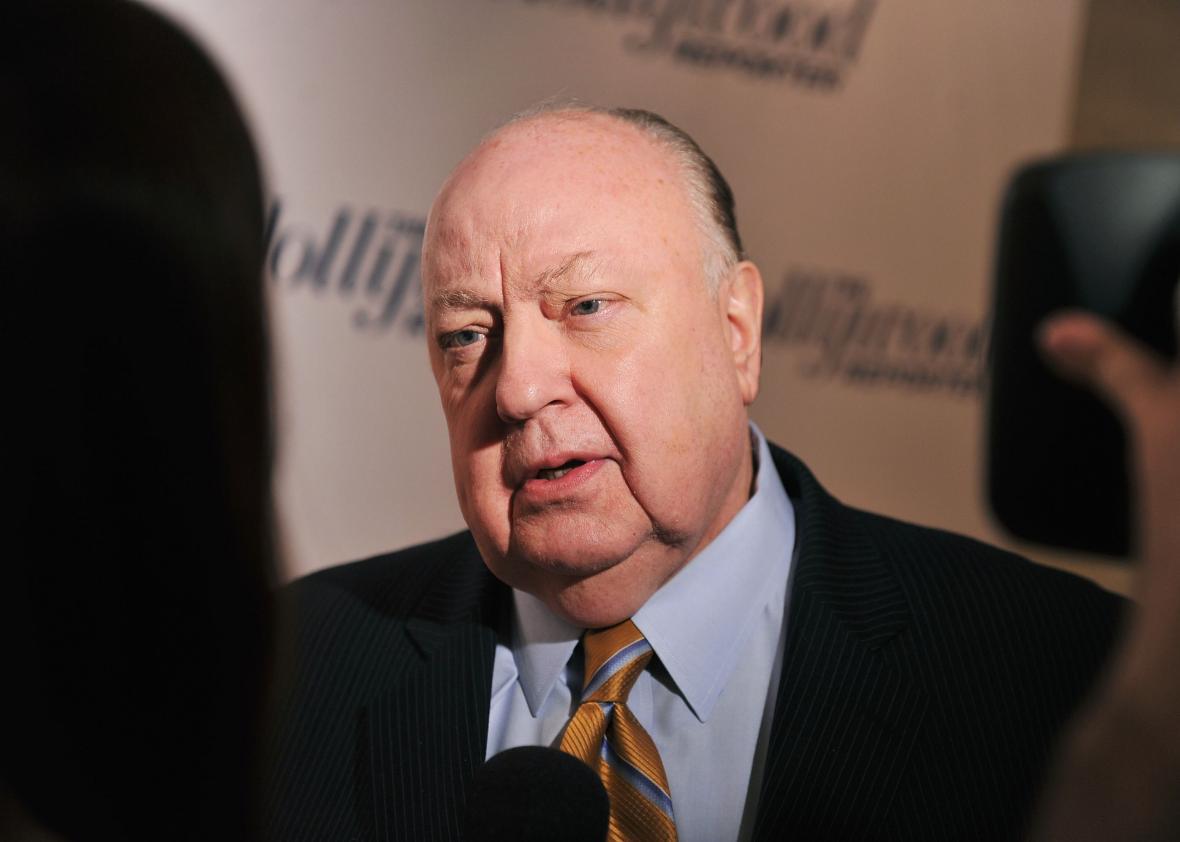As allegations mounted last week that Roger Ailes, Fox News’ chairman and chief executive, has sexually harassed women in his workplace throughout his career, the lawyer for one of his accusers shared a perhaps inevitable coinage. “Someone suggested he’s the Bill Cosby of media,” attorney Nancy Erika Smith told New York magazine. It might be more accurate to say that Ailes’ case illustrates a distinctly post-Cosby moment: one in which the testimonies of a powerful man’s alleged victims are taken more seriously by the mainstream media, and by many of its consumers, than would have been imaginable even a few years ago.
Ailes’ behavior is finally receiving scrutiny because of a lawsuit filed by former Fox News host Gretchen Carlson, who alleges that she was fired in June as retaliation for refusing to have a “sexual relationship” with him. Carlson’s complaint says that Ailes reassigned her from her spot as co-host of Fox & Friends, one of the network’s top shows, to a backwater afternoon time slot after she reported sexist discrimination from her co-host, Steve Doocy. When Carlson appealed to Ailes, the complaint says he told her: “I think you and I should have had a sexual relationship a long time ago and then you’d be good and better and I’d be good and better. … Sometimes problems are easier to solve that way.”
Almost as soon as Carlson went public, other women came forward with similar accounts of their own. On Saturday, New York published the stories of six more women who describe being harassed by Ailes, and, in some cases, punished for rebuffing his advances. Former Republican National Committee field adviser Kellie Boyle told New York reporter Gabriel Sherman that she was blacklisted within GOP circles after refusing Ailes in 1989. As a friend at the RNC told her at the time, “Word went out that you weren’t to be hired.” It seems we haven’t yet heard from all the women who recognized their experiences in Carlson’s complaint. As Sherman writes:
In recent days, more than a dozen women have contacted Carlson’s New Jersey–based attorney, Nancy Erika Smith, and made detailed allegations of sexual harassment by Ailes over a 25-year period, dating back to the 1960s, when he was a producer on The Mike Douglas Show. … Taken together, these stories portray Ailes as a boss who spoke openly of expecting women to perform sexual favors in exchange for job opportunities.
This characterization shouldn’t shock anyone who read Sherman’s 2014 book about Ailes, The Loudest Voice in the Room, which included interviews with four women who described similar experiences with the Fox CEO. Why didn’t their testimonies precipitate this reckoning more than two years ago? Ailes certainly doesn’t seem to have changed in that relatively short span of time—but our culture’s response to sexual assault and harassment has. And Cosby’s fall from grace is both a means and a measure of that shift. As Noreen Malone wrote in a pivotal New York piece last summer—which published the names, photos, and stories of 35 of Cosby’s alleged victims—14 women accused the comedian in 2005, “[b]ut they were met, mostly, with skepticism, threats, and attacks on their character.” It seemed nothing would convince America to see its favorite TV dad differently. And yet, in 2014, a bit about the accusations from the comedian Hannibal Buress went viral—and this time, when women came forward, the public listened. Cosby was forced to resign from Temple University’s board of trustees, and to contend with multiple lawsuits, some of them ongoing.
It’s hard to say why our country’s reflexive disbelief of sexual assault survivors finally seems susceptible to facts and testimony. The activism of young women on college campuses seems to have played a role, as does the viral power of social media. What’s clear is that, as Malone wrote last summer, “More has changed in the past few years for women who allege rape than in all the decades since the women’s movement began.” Now, the highly visible reassessment of Cosby seems to be accelerating the process.
Multiple times in the past year, we’ve seen that when one victim goes public about harassment or abuse at the hands of an influential man, others are emboldened to follow—and the combined weight of their accounts produces results. In December, Michelle Goldberg wrote for Slate about Trevor FitzGibbon, who allegedly propositioned a woman, Sierra Pedraja, interested in a job at FitzGibbon Media, his progressive P.R. firm. Almost immediately, “[f]emale employees began telling each other their own stories: some similar to Pedraja’s, some much worse,” Goldberg wrote. “It was as if Pedraja had kicked over a rock, revealing all the vermin beneath.” FitzGibbon Media folded. The next month, a similar scandal shook the indie-music world when Amber Coffman of the band the Dirty Projectors accused publicist Heathcliff Berru of groping her and biting her hair at a bar. Within hours, other women in the music industry had chimed in with similar stories, and by the next day Berru had stepped down from his company. Maybe, as Spencer Kornhaber wrote at The Atlantic at the time, “the risks of treating women monstrously are higher than before.”
The risks are still too low for powerful men across industries. Consider Sony producer Dr. Luke, who remains unscathed after Kesha’s allegations of rape and abuse, or Donald Trump, whose presidential campaign has been bolstered in some corners by his outright misogyny. But it no longer seems like too much to hope that Ailes, at least, might finally receive the bill for his decades-old tab, or that, as the years go by, he won’t be the only one.
